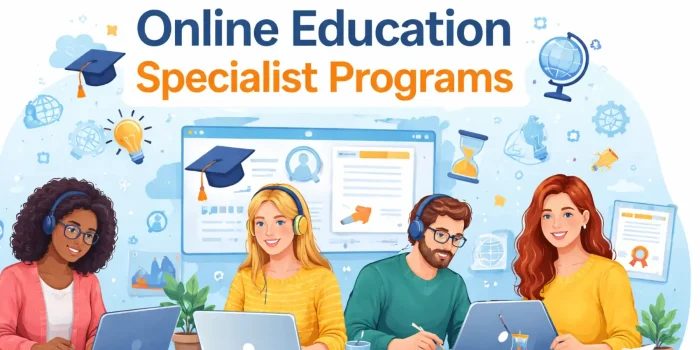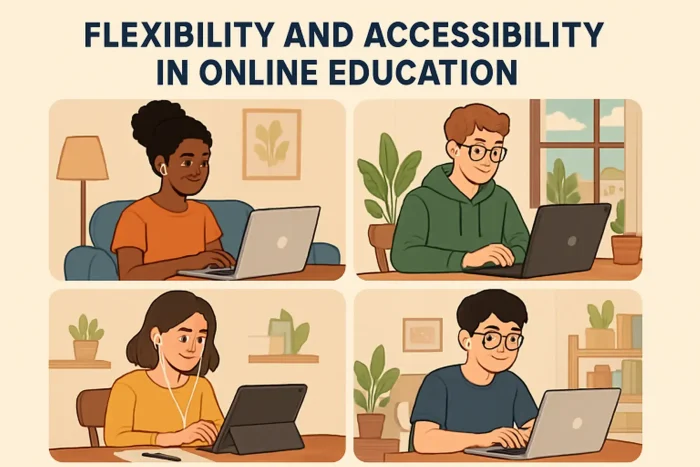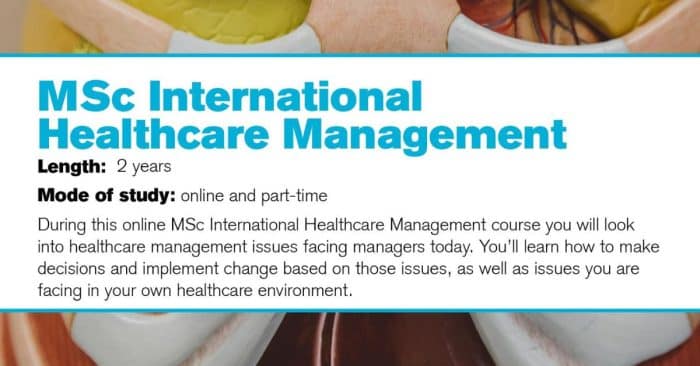The world of education has seen a seismic shift towards online platforms, especially in the wake of global events like the COVID-19 pandemic. While traditional classroom education has its merits, teacher hiring websites brings to the table a host of advantages, including flexibility, personalized learning experiences, and global connectivity.
However, navigating the online education landscape requires certain skills and attitudes to truly reap the benefits. In this article, we’ll delve into ways you can maximize your experience when taking online courses or degrees.
Cultivate Self-Discipline and Time-Management Skills
Let’s face it: The allure of taking a course in your pajamas is tantalizing. However, it’s incredibly easy to become complacent. Unlike the structured setting of a physical classroom, online learning demands a higher level of self-discipline and time-management skills. You won’t have a teacher looking over your shoulder, so it’s crucial to set specific goals and stick to a daily or weekly schedule.
A handy tip is to treat your online course just as you would a conventional course. This means setting aside specific time slots for attending virtual lectures, doing coursework, and studying. A well-structured routine helps in reducing procrastination and keeping track of deadlines. Utilizing tools like digital calendars, to-do lists, or even mobile apps that block distracting websites during study time can be incredibly beneficial.
Online Education Allows for the Pursuit of Higher Degrees
The allure of higher education is often met with obstacles like time commitment, geographical constraints, or financial limitations. Online education breaks down many of these barriers, allowing you to pursue higher degrees like Masters or even Doctorates from the comfort of your home.
Among higher degrees, the Master of Business Administration (MBA) stands out as particularly popular in the online realm. With online MBAs, you get the same rigorous curriculum, opportunities for networking, and career advancements that a traditional MBA offers, but with the added benefits of flexibility and often lower costs.
You can keep your job, fulfill family commitments, and still earn a degree that can significantly boost your career trajectory. Online MBA programs also offer various specializations, allowing you to focus on areas that are directly relevant to your career goals.
Here are some of the most sought-after specializations you can apply for:
- M.A. in Organizational Management and Leadership Online
- MBA in General Business Online
MBA with a Concentration in Accounting Online - MBA with a Concentration in Aerospace Logistics Online
- MBA with a Concentration in Data Analytics Online
- MBA with a Concentration in Entrepreneurship Online
- MBA with a Concentration in Finance Online
- MBA with a Concentration in Healthcare Information Systems Online
- MBA with a Concentration in Human Resources Online
- MBA with a Concentration in Leadership Online
- MBA with a Concentration in Management Online
- MBA with a Concentration in Marketing Online
- MBA with a Concentration in Native American Leadership Online
- MBA with a Concentration in Project Management Online
MBA with a Concentration in Safety Online - MBA with a Concentration in Strategic Communication Online
- MBA with a Concentration in Women in Leadership Online
Engage Actively With The Course Material and Fellow Students
In a physical classroom, participation often means raising your hand to answer a question or engaging in group discussions.
Online education provides similar, if not more, opportunities to interact with your course material and classmates. Many online platforms have forums where you can post questions, share resources, and engage in debates.
Active engagement deepens your understanding of the subject matter and enriches your learning experience. Remember, the more you put in, the more you get out. Try to go beyond merely watching lecture videos or reading assigned materials. Take notes, apply what you learn in practical scenarios, and never hesitate to ask questions. Your instructors and peers are invaluable resources—don’t be afraid to tap into that wealth of knowledge.
Make the Most of Supplementary Resources
One of the most compelling advantages of online education is the wealth of supplementary resources at your fingertips. In addition to the primary course material, most online platforms offer a range of additional resources like articles, e-books, webinars, and quizzes. These resources provide varying perspectives and additional knowledge, making your educational journey well-rounded.
It’s a good idea to take advantage of these supplementary materials. If the course doesn’t provide them, don’t hesitate to seek them out yourself. Numerous academic databases, YouTube channels, and other online platforms offer high-quality resources that can complement your learning. Your growth in the subject you’re studying isn’t confined to the syllabus, so explore freely.
Embrace the Flexibility but Maintain a Sense of Commitment
Flexibility is one of the hallmark benefits of online education. You can learn from anywhere and often choose a learning schedule that fits your lifestyle. However, this flexibility should not be mistaken for a lack of commitment. The courses are designed to be just as rigorous as their in-person counterparts. Therefore, while enjoying the flexibility, you must maintain a sense of commitment to your educational journey.
Leverage Real-world Applications for a Practical Learning Experience
One of the underestimated perks of online education is its ability to easily integrate real-world applications into the learning process. Unlike traditional classrooms, which may sometimes feel disconnected from “real-world” situations, online courses often incorporate case studies, simulations, and real-world projects to enhance learning.
These real-world applications not only enrich your understanding of the subject but also provide you with a tangible skill set that can be directly applied in your career or daily life.
For example, an online course in digital marketing may require you to create a mock advertising campaign, complete with a budget, target audience analysis, and performance metrics. This exercise offers hands-on experience that you would seldom get from merely reading a textbook. It’s like an internship and a course rolled into one, and the skills you acquire can be immediately applied to your current or future job.
Another way to leverage real-world applications is to tie your coursework with your own goals or projects. Are you learning web development? Build your own website as you progress through the course. Studying finance? Try creating a personal budget or investment portfolio based on what you’ve learned.
Engaging in real-world applications reinforces the course material, making it more memorable and easier to understand. Plus, it provides a fulfilling sense of accomplishment that boosts your motivation to learn. This approach bridges the gap between theoretical knowledge and practical application, helping you get the most out of your online educational experience.
Conclusion
To wrap up, the shift towards online education offers a plethora of opportunities for students around the globe. However, to truly capitalize on these opportunities, one must approach online learning with discipline, active engagement, and a willingness to make use of all available resources. So put on your (virtual) thinking cap and embark on a fulfilling journey of online education.
– If you are looking for guest posts write for us education now.





